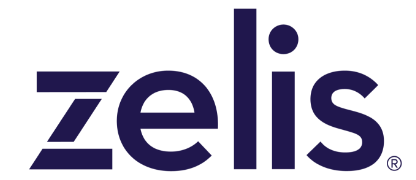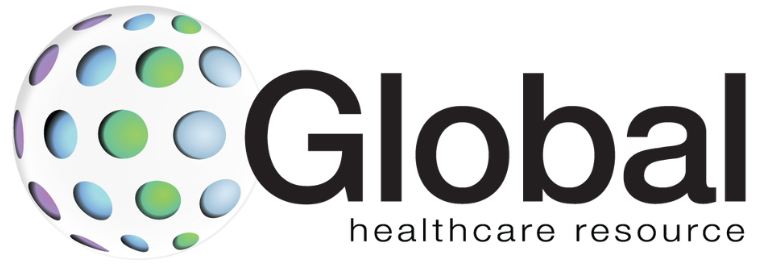This article is part of an end-of-the-year series in which select MedCity News staff members share their healthcare M&A wish list for 2016. For Chris Seper’s M&A list click here and for Meghana Keshavan’s list click here.
As predicted, mergers and acquisitions in digital health accelerated in 2015. MobiHealthNews counted 37 M&A deals. Not only did healthcare and life science companies acquire digital health companies — such as Genoa’s purchase of 1DocWay — but also non-healthcare businesses made a high profile splash into digital health such as Under Armour’s acquisition of consumer wellness companies MyFitnessPal and Fossil’s deal to purchase Mifit wearables.
The wide speculation is that 2016 will be a year in which consolidation will accelerate.
The speculation is correct.
IBM Watson Health acquires Flatiron Health
IBM is one hungry big data kahuna. In the past year, it acquired Cleveland Clinic spinout Explorys, Phytel and, most recently, medical imaging business Merge Healthcare.
So adding a cancer treatment clinician support business Flatiron Health to its portfolio seems like a logical progression, especially for a company that has collaborated so much with hospitals on cancer big data initiatives. In the past couple of years Flatiron has ramped up its products organically and through acquisition, including a billing component added last month.
Oscar acquires Clover Health
Given the enormous amount of funding and resources needed to establish a health insurer, these companies are likely to find they can improve their competitiveness by teaming up. Although they face a pretty formidable challenge with even the largest insurers merging to improve their competitiveness, I think growth through acquisition will be their best bet.
Verizon acquires remote monitoring startup Biogaming
I wouldn’t go so far to say that telemedicine is a no brainer for cable companies. Risk aversion in the realm of healthcare is a real concern. But cable and telecommunications are clearly interested in digital health. Comcast has moved into the Internet of Things and it’s also part of a Philadelphia-based Health Care Innovation Collaboration.
Verizon has a healthcare business, but it has had setbacks. In January, it acknowledged that it ended Virtual Visits, a direct-to-consumer telemedicine program and an FDA-cleared telehealth app Verizon Wireless Converged Health Management Device. I could envision the business using remote monitoring as a way to reach a large number of customers through their TVs and mobile devices. Given the kind of bundled payment models we’re seeing with things like hip and knee replacement, coupled with the use of gaming to improve patient engagement, a company like Biogaming could make a good fit.
Under Armour deepens digital health portfolio with Provant acquisition
Earlier this year, Under Armour made a big splash into the consumer wellness side of digital health with its MyFitnessPal deal. It also created the user data aggregation unit UA Record. Its CEO has made a point of acquiring businesses that not only serve its interests in digital health but also have loads of end users that it can convert into customers for its apparel business.
Given how much overlap there is between employer wellness programs and gaming, an employer wellness acquisition for an established player like Provant makes sense.
Medtronic became an investor in the digital heath company this year as part of a $16.5 million Series B round. The big medical device companies, and not-so-big companies, have demonstrated their interest in digital health as a way to add services to their medical devices and add a way to quantify the patient’s condition. Charles Whelan, Director of Consulting for Healthcare and Life Sciences for North America at Frost & Sullivan, said in an interview last year that he anticipates medical device vendors becoming one-stop shops for all medical devices, particularly as hospitals become increasingly cost conscious.
Glooko’s platform is designed to help unlock data from glucose meters and insulin pumps to get a better picture of patients who require intensive, day-to-day glucose management, and make it easier for healthcare providers to get a full picture of a patient’s health.
The Affordable Care Act has provided financial incentive for hospitals to work more closely with patients to manage their condition. Medical device companies are compelled to give hospitals with tighter wallets more reason to buy their products by adding more services that can quantify outcomes.
Kaiser Permanente acquires Kognito
Kognito is a really interesting company. It has developed a wide variety of simulation tools for physician-patient interactions, particularly role-playing for difficult patient conversations, such as helping primary care doctors identify signs of post traumatic stress disorder, child obesity and managing post deployment stress. Most recently, it has turned its attention to the tricky challenge of reducing physician prescriptions of antibiotics.
It’s smart enough to recognize that what often makes this conversation challenging is that there are tensions on both sides of it. Patients may view a prescription as something being done about their condition and doctors need to take different tactics to do a better job of explaining why antibiotics aren’t always appropriate.
With Kaiser opening a medical school, what better opportunity to add to its training programs?
Avizia acquires teledermatology company 3Derm
Altough Avizia is a young company itself, it has said it is keen to grow through acquisitions. Expanding into teledermatology would broaden its customer base and provide a more specialized customer base. It would also reflect the consolidation trend in this subsector. One goal of teledermatology companies is to counter the long wait times for dermatologists. 3Derm’s approach isn’t simply to rely on patients to take their own camera phone pics. It works with primary care physicians to take these images and transmit them to dermatologists.
Travelers Insurance acquires telemedicine company Doctor on Demand
Workers’ compensation costs for employers add up to an estimated $1 billion per week. Telemedicine could provide a way for companies to set up a system to track their employees as they recover from injuries, procedures, and to assess what their care needs are. Insurance companies in the workers’ compensation sector are increasingly interested in utilizing remote monitoring tools like this. Doctor on Demand was recently named the fastest growing company in digital health.
Tired of other companies claiming to be the Uber of healthcare, Uber decides to move more aggressively into the sector with its UberHEALTH brand. Uber has demonstrated its interest in the healthcare realm through collaborations with groups such as Practo Health in Asia and Passport Health. Earlier this year, the concierge care service Pager inked a deal with healthcare staffing service Evolution Health and worked out an agreement with Walgreens that will help it expand into a national presence.
Philadelphia 76ers acquires majority stake in Catapult
My hometown basketball team is dead last in the NBA. The 76ers are the polar opposite of the unstoppable Golden State Warriors, which have the best point guard in the NBA.
Catapult, as described in a Denver Post article, is a wearable patch that sits between an athlete’s shoulder blades. It’s designed to track and record “every micromovement of a player.” It generates big data that is crunched by the company’s algorithms to provide feedback for players.
Although it is partly designed to help avoid injuries, Catapult could provide useful feedback to improve overall performance.
Photo: Getty Images










